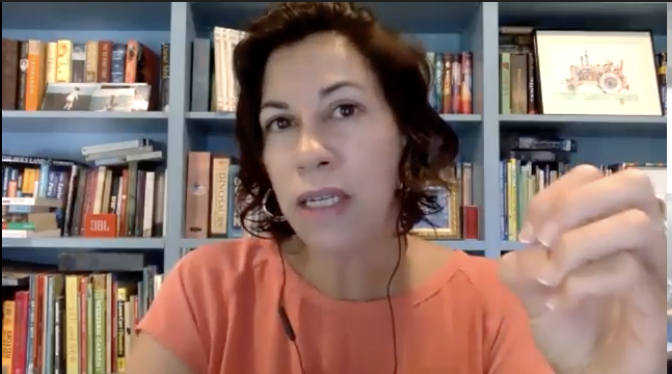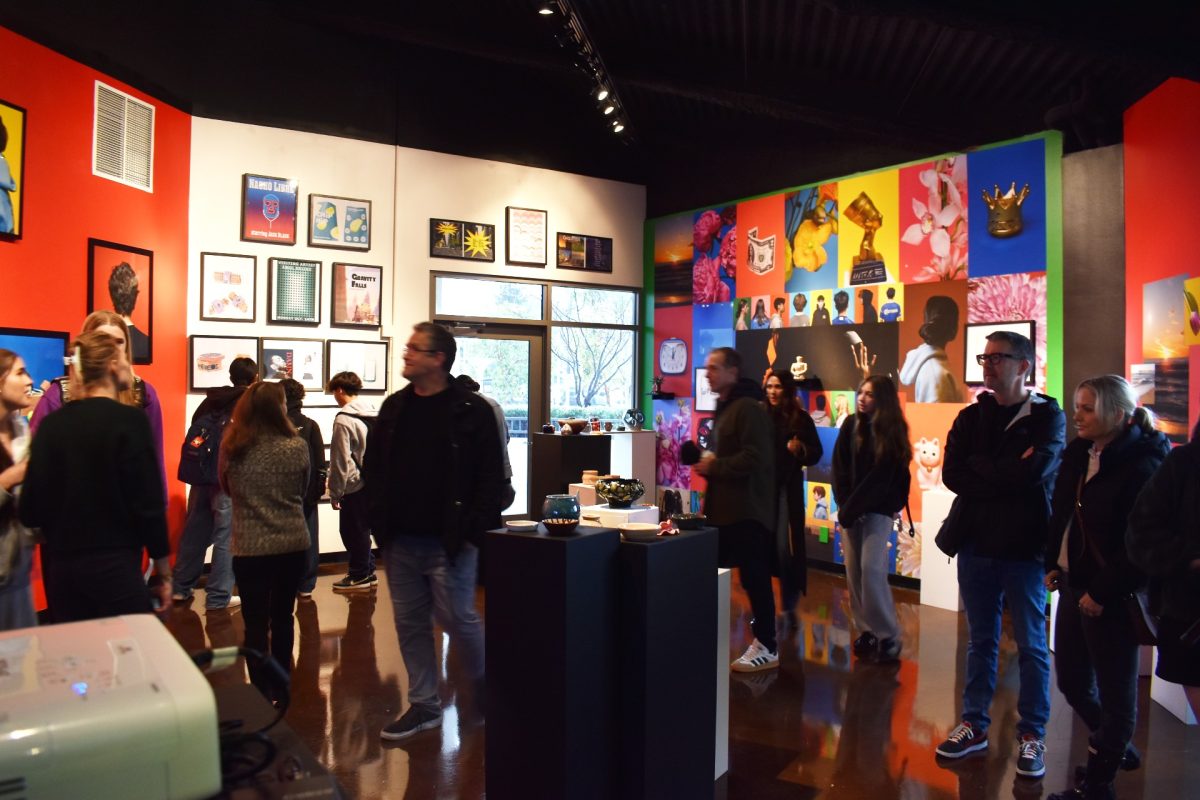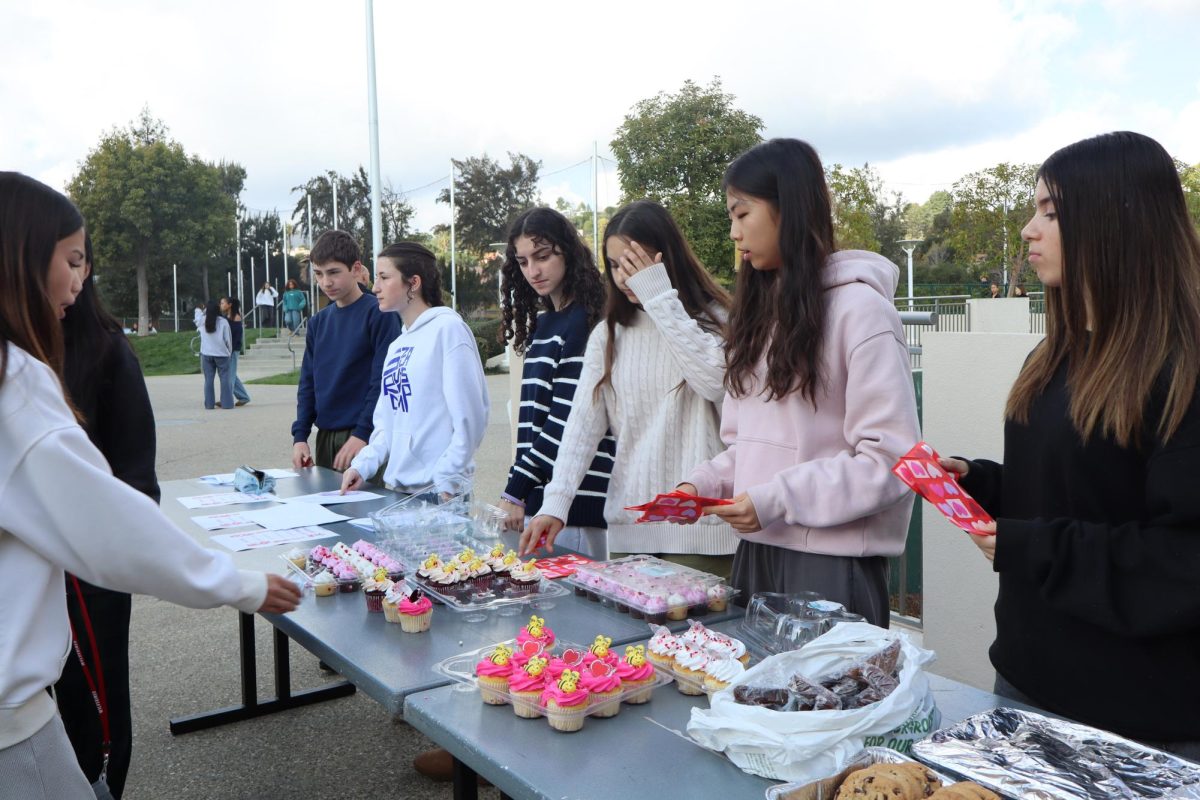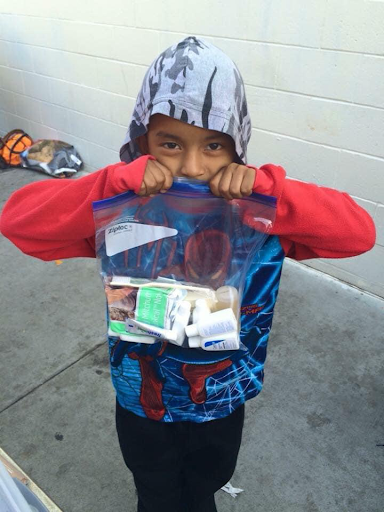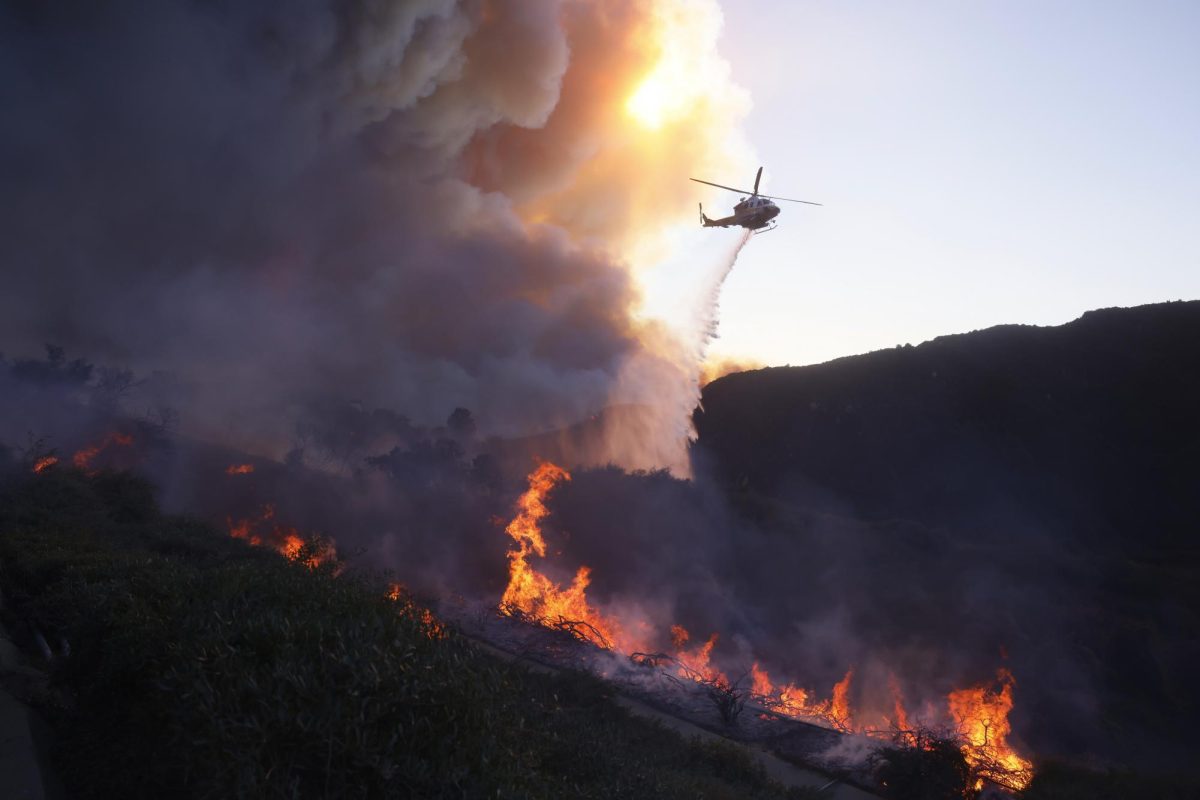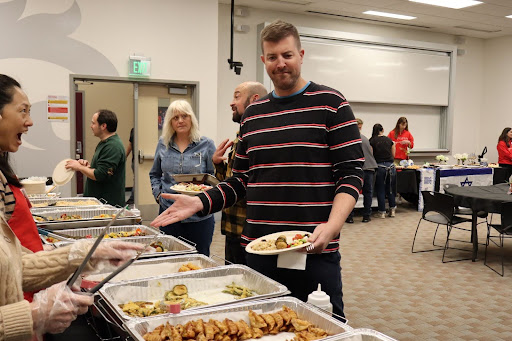Harvard-Westlake (HW) Middle School history teacher Rosemary van Vlijmen hosted Deborah Camiel P’24 on May 24 to speak about the history and context of the Israeli-Palestinian conflict. Camiel spoke live through Zoom to three of van Vlijmen’s ninth grade World and Europe I classes, and van Vlijmen shared a video recording of the presentation with her other classes as well.
Camiel is an award-winning journalist who traveled the world covering various regions before returning to the United States when she had a child. Camiel spent much of her career in the Middle East as a war zone reporter, covering Israel, the Palestinian territories, Lebanon, Syria, Egypt and Jordan. This experience in the Middle East has given Camiel first hand knowledge of the complexity of geopolitical issues in the region – including the Israeli-Palestinian conflict.
Despite the fact that her classes are not currently learning about the Israeli-Palestinian conflict, van Vlijmen found it important to give her students a background on the conflict due to the current events in the region and misinformation being spread as a result of it.
“Several of my students approached me and were very upset about the recent events in the Middle East,” van Vlijmen said. “Many students felt that people did not understand what was happening in the region and posted anti-Semitic comments online. I felt it was important to use this opportunity to educate students on the issues at hand.”
Though there is always tension between Israel and Palestine, May 2021 saw an escalation in the Israeli-Palestinian conflict. The May 2021 crisis was marked by protests and rioting, police riot control, and rocket attacks by both Israel and Hamas targeting one another. The violence finally ended on May 21, when a ceasefire between Israel and Hamas came into effect, ending 11 days of fighting. However, the crisis took its toll, with at least 254 Palestinians and 13 Israelis being killed.
Camiel said she believes it is important for students to hear first hand accounts of the history and information because it gives them a better lens into the reasoning for the conflict.
“I think it’s always great to hear from people who are witnesses to history, and journalists are lucky to be numbered among that group,” Camiel said. “The Israeli-Palestinian conflict, because of its complexity, takes a bit of background to understand. The history, the claims, and the strategies of each side–even the various groups on each side–are the context for every new episode of violence and, eventually I hope, peacemaking. As Americans, it behooves us to understand Israel, Israelis, and why they are our closest allies in the Middle East, as well as Palestinian aspirations for a state and the devastating cycle of violence that both these peoples find themselves in today.”
Camiel also noted it’s important to give students a clear understanding of the conflict so they don’t accidentally fuel anti-Semitic rhetoric.
“There is another issue that I’m sure particularly concerns Jewish students, which is that when Israeli-Palestinian violence breaks out, it can give rise to not only biased–or even just bad–reporting, but antisemitic commentary and worse–attacks against Jews,” Camiel said.
During her presentation, Camiel spoke about her experiences in the Middle East and gave an overview of the history of the region as context to the May 2021 crisis. Camiel also explained the current crisis to students and what they can expect to see next.
Camiel said it was enjoyable to speak to HW students, and she was surprised at the level of engagement students had.
“It was so fun to present to HW students!” Camiel said. “I really felt like everyone was engaged and taking it all in, and I was surprised at how many students stayed behind to ask thoughtful questions and talk. It’s gratifying to see teenagers who are interested and thinking seriously about the world.”
Following Camiel’s presentation, van Vlijmen was pleased with the non-biased education she provided her students.
“Camiel did a good job presenting both sides of the issue,” van Vlijmen said. “She spoke about the Israeli perspective and the Palestinian perspective without bringing in any bias. It was nice for students to hear that many Palestinians and Israelis live in peace in the region. This conflict does not represent the sentiments of everyone living in both Israel and Palestine.”
Students who watched Camiel’s presentation enjoyed the presentation and felt they learned a lot from it.
Hannah Carbunaru ‘24 said it was interesting to hear the unfolding history in the Middle East from someone who had spent time there.
“I thought that the presentation was very interesting,” Carbunaru said. “She was able to explain everything very well. I also think it was fascinating how she went to those countries in the Middle East and really experienced what was happening.
Sabrina Liu ‘24 said that Camiel’s impartial presentation was important as it gives students education on such an important topic.
“Ms. Camiel’s presentation on Israel and Palestine was very enjoyable, as she thoroughly explained every aspect of the conflict in an impartial manner and provided a straightforward account on such historical events not taught by many institutional curricula,” Liu said. “I believe that understanding the Israeli-Palestinian conflict helps individuals make educated and moral choices (both physically and via the media) in such a prejudiced world.”
Despite Camiel presenting to students about very complex historical events, she noted that HW students are currently living through history and she admires the perseverance students have shown.
“I want to note that you have all, in the past year and a half, been witnesses to history yourselves, and I want to express my admiration for the way you have all pressed on through this difficult time and have now come out the other side,” Camiel said.
